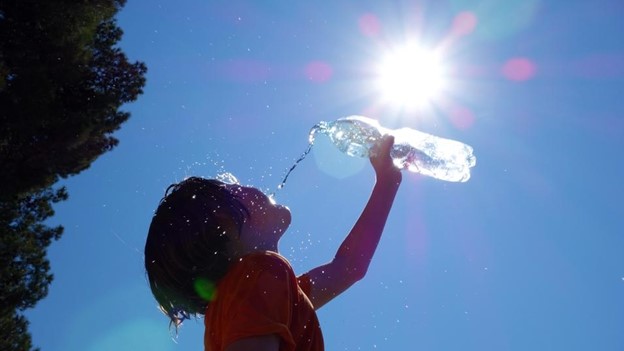Sponsored content contributed by AOC Business Partner: Regence
Be sure to stay hydrated and keep kids hydrated. Never leave kids or pets in the car on a hot day, even for a short time. Check up on the older people in your life every couple of days during a heat wave to ensure they are staying cool and hydrated.
What is heat exhaustion?
Heat exhaustion occurs when you are exposed to high temperatures, particularly when combined with high humidity. Signs and symptoms can develop suddenly or over time, especially with prolonged periods of exercise. Heat exhaustion symptoms include:
- Moist skin with goosebumps when in the heat
- Heavy sweating
- Dizziness
- Fatigue
- Weak, rapid pulse
- Muscle cramps
- Headache
- Fainting (passing out)
If you experience symptoms of heat exhaustion, stop all activity and rest. Find a cool place for your body to cool down and drink cool water. Heat exhaustion, if left untreated, can progress to heat stroke.
What is heat stroke?
Heat stroke occurs when your body overheats, usually due to extended exposure to or physical effort in hot temperatures. Heat stroke can happen when the body’s temperature rises rapidly and the body is unable to cool down with sweating. Heat stroke symptoms include:
- Altered mental state or behavior, such as confusion and slurred speech
- High body temperature (103°F or higher)
- Hot, red, dry or damp skin
- Nausea and vomiting
- Rapid breathing
- Racing heart rate
- Headache
- Dizziness
- Losing consciousness (passing out)
If you or someone you know starts experiencing symptoms of heat stroke, seek medical attention immediately.
How to stay safe in the heat
While heat exhaustion and heat stroke are serious conditions, they are also preventable. Keep these tips in mind to stay safe in hot weather:
- Avoid exercising outside during the hottest part of the day, typically between 11 a.m. and 3 p.m. Instead, plan your outdoor activities in the early morning hours or late evening to avoid unnecessary heat exposure.
- Drink plenty of water. The average adult needs 3 to 4 liters of water each day — that’s 12 8-oz glasses. During periods of excessive heat, plan to drink more than that as your body dehydrates more rapidly.
- Limit alcohol intake. Alcohol can affect the body’s ability to regulate its temperature.
- Wear loose-fitting, lightweight clothing. Heavy or tight clothing can prevent sweat from evaporating easily, so the body won’t cool down.
- Take steps to keep your home cool. This can include keeping your windows and doors closed during the day to prevent the heat from coming in. Try to avoid using the oven when you’re cooking. If you don’t have air conditioning, you can still keep cool with a fan to circulate the air.
- Use sunscreen and other protective measures to avoid sunburn.

